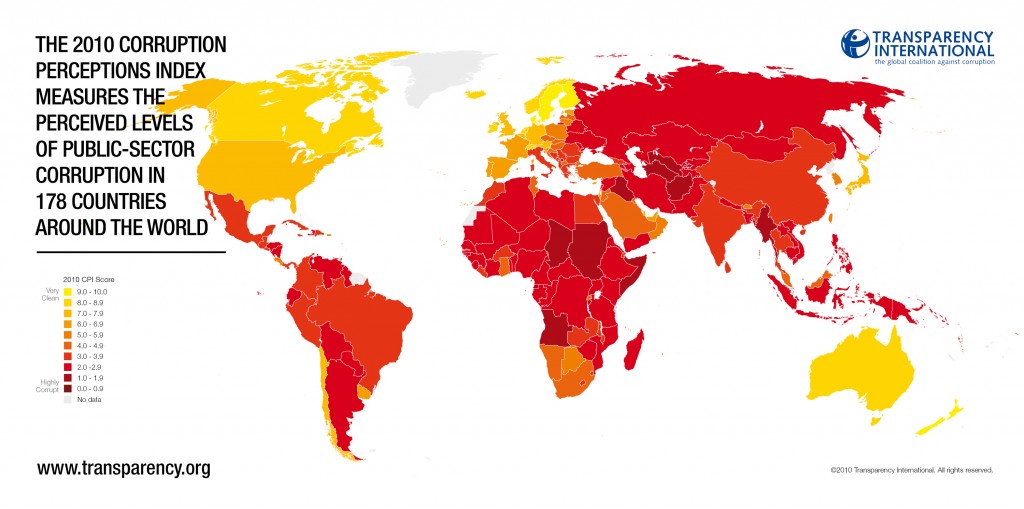Apathy is not an option
Here’s a post from the ONE BLOG about the International Anti-Corruption Conference getting under way in just a few days in Bangkok. This is a major gathering with more than 1500 people from 130 countries scheduled to attend. I’m thrilled that my short film, Cameroon: Pipeline to Prosperity? will be screening at the conference.
Nov 4th, 2010 4:37 PM EST
By Malaka Gharib
Next week, delegates from more than 130 countries will converge in Bangkok, Thailand to participate in the world’s largest anti-corruption meeting, the 14th annual International Anti-Corruption Conference (IACC).
According to Andrew Marshall’s Time Magazine article “How Corruption Is Holding Asia Back,” corruption is a problem that affects dozens of countries across the world — not just developing nations — and has been met with increasing apathy and acceptance from both world leaders and citizens.
What is most alarming, says Mr. Marshall, is that corruption creates an environment in which dishonesty can thrive even further. Last year’s Transparency International report said that the most common source of bribe demands is the police. And in sub-Saharan Africa, corruption is one of the region’s major barriers to ending extreme poverty. In fact, Africa loses around $148 billion each year as a result of corruption alone.
As you can see, “corruption is everyone’s problem — and apathy is no longer an option,” says Mr. Marshall.
We couldn’t agree more. It’s our duty as advocates to make sure that people know that corruption hurts — not helps — the fight against poverty. We’re curious to see what comes out of this year’s IACC meeting and hope that the delegation makes some headway in this growing issue.
Corruption Index
Transparency International has released its 2010 Corruptions Index. Chad ranks among the ten most corrupt countries in the world. Cameroon has made some progress — just a few years ago the country was at the bottom of the ratings — but is still mired in corruption.
Corruption was a problem in both Chad and Cameroon before Exxon began drilling. Organizations opposed to the World Bank’s involvement in the project warned that rampant corruption would certainly impact any poverty alleviation plans. They were right, but the World Bank knew this, too…which brings us back to the Bank’s crackdown on corruption. You can stop doing business with companies that bribe officials, but as long as those officials operate in a culture of impunity you’re not reducing corruption.




